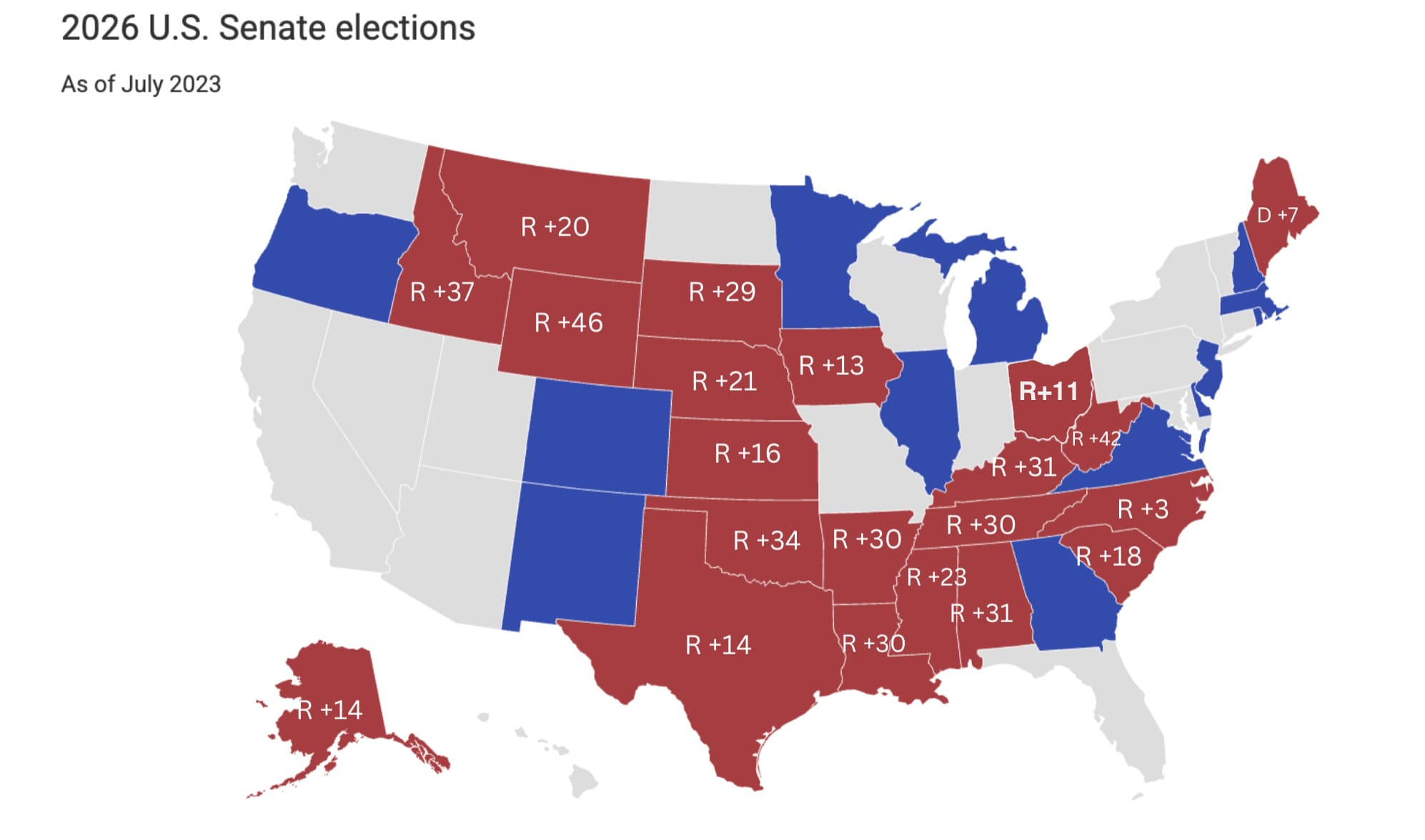Senate Control Crucial to Judicial Future, Says Analyst, as Recent Elections Highlight Appointment Stakes

Political analyst Matthew Yglesias has underscored the critical importance of contesting as many U.S. Senate seats as possible to prevent what he describes as the "long-term MAGAfication of the courts" and a "total collapse of the rule of law." His recent commentary emphasizes that control of the Senate directly impacts the composition of the federal judiciary, a concern amplified by recent electoral outcomes.
"The only way to stop the long-term MAGAfication of the courts and the total collapse of the rule of law is to meaningfully contest as many senate seats as possible," Yglesias stated in a recent social media post. This perspective highlights a growing apprehension among some political observers regarding the judiciary's ideological balance and its implications for American governance.
A "big tent" political strategy, characterized by an inclusive approach that appeals to a wide spectrum of voters, is central to Yglesias's argument for securing Senate majorities. Such a strategy aims to build broad coalitions necessary to win elections, thereby influencing the legislative body responsible for confirming judicial nominees. The Senate's role in judicial appointments has become increasingly pivotal, with recent administrations prioritizing the confirmation of ideologically aligned judges.
The impact of Senate control on judicial appointments is significant. Historically, presidents have a higher success rate in confirming their judicial nominees when their party controls the Senate. For instance, a 2024 Brookings Institution analysis noted that between 1947 and 2022, over 80% of appellate court nominees were confirmed when the president's party controlled the Senate, compared to under 70% during periods of divided government. This dynamic has led to intense partisan battles over judicial vacancies, especially with a polarized political landscape.
Concerns about the "MAGAfication of the courts" stem from the substantial number of conservative judges appointed during recent Republican administrations. These appointments, often of younger jurists, are expected to shape legal interpretations for decades, influencing areas from regulatory policy to civil liberties. The strategic importance of Senate elections in shaping the judiciary is thus a key focus for those concerned about the future direction of legal precedent and the rule of law.